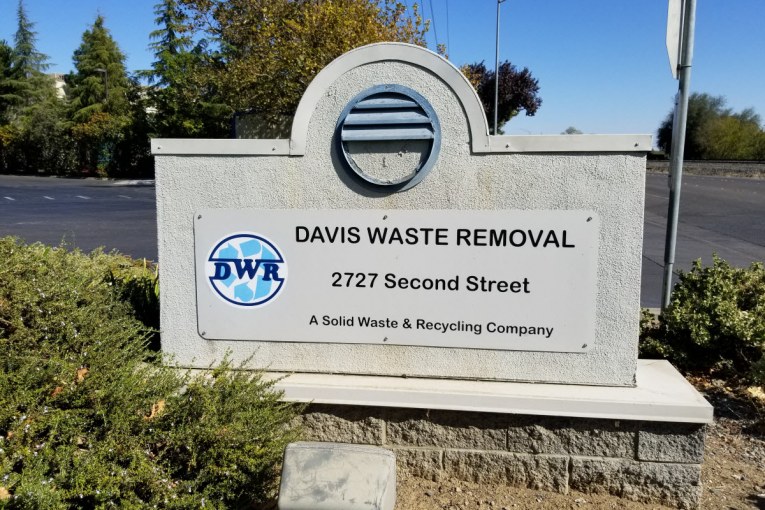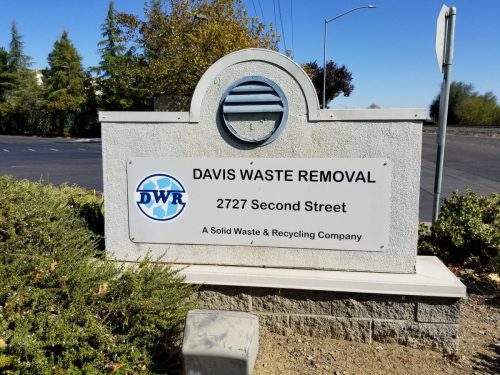

(This letter was submitted to council from Doug Kobold on October 8, 2017).
I would like to take this moment to express my gratitude for the opportunity to comment on this subject at the last City Council Meeting. I have had the pleasure of working directly with the owners and staff of Davis Waste Removal (DWR) during my tenure working for Yolo County and managing the day-to-day operations of the Yolo County Landfill from 1992-1998. As I explained at the last council meeting, I have 25 years of direct experience in solid waste and recycling, including residential collections, transfer station operation, and landfill operation.
I believe the Council should not miss out on an opportunity that will not likely present itself again, as was pointed out by most of the folks that commented at the council meeting. I elaborated during my comments on the experience the City of Sacramento had back in 2011 when it had a similar opportunity to exercise a First Right of Refusal (FROR) for the Sacramento Recycling & Transfer Station (SRTS) that was owned at that time by BLT Enterprises of Sacramento (BLT). In 2011, the City of Sacramento had the opportunity to purchase SRTS from BLT for approximately $26M. BLT had constructed and operated SRTS under an agreement with the City of Sacramento since 1999. This FROR was triggered when BLT sought to sell SRTS and all of its associated contracts to Waste Management, Inc. (WMI). BLT and the City of Sacramento had just completed brokering a deal between themselves and the County of Sacramento that resulted in Municipal Solid Waste (MSW) and Single Stream Recycling (SSR) tonnage commitments by the City of Sacramento to BLT until 2030. At the same time, the City and BLT committed MSW tonnage to the County of Sacramento at Kiefer Landfill. The City of Sacramento entered into a MSW contract that has now caused their cost per ton of MSW disposal at SRTS to soar to over $62 per ton, while the County of Sacramento is charging the City of Sacramento less than $47 per ton, for the same service. That $62/ton rate has increased in accordance with annual CPI increases from $55/ton since 2011 and will continue to rise at a similar rate each year until 2030. The residents of the City of Sacramento enjoy one of the highest costs for residential service in the region, due in big part to this deal.
The City of Sacramento had an opportunity, as I noted above, to purchase SRTS for $26M, but chose to pass on that opportunity. WMI ended up purchasing SRTS and its contracts for approximately $70M.
This reflected a contract value of $44M, of which the City of Sacramento could have removed from their cost structure by buying its own contracts. There would have been costs in operating, or contract operating, SRTS, but those could be controlled by the City of Sacramento. Rest assured, WMI will get that additional $44M out of the City of Sacramento over the years since 2011 and the remaining nearly 13 years to come. If the City of Sacramento wants to do anything different, then the City of Sacramento will have to wait until after 2030 and hope that another company would be willing to come in and build another large Material Recovery Facility (MRF) that would compete against the existing MRFs and Transfer Stations in the area.
As for DWR, if the City of Davis were to purchase the DWR land and structures, DWR can negotiate a contract with Recology to operate that facility for whatever time the City of Davis feels appropriate. This public ownership, contract operated, model exists in many communities around the Sacramento Region. The Counties of Yolo (Yolo County Central Landfill), San Joaquin (Foothill Landfill and the Lovelace Transfer Station), and Placer (Western Placer Waste Management Authority facilities), to name a few have this type of relationship in place and have been very happy with the results. Owning the land and structures on 2nd Street in Davis ensures that the City of Davis can control how the facility is operated and by whom. In the event the City of Davis is unsatisfied with the service provided by Recology, the City of Davis can either let the contract expire naturally and move onto another service provider, or in the event of a breach of contract, end the contract abruptly and put in place another company with knowledge that that new company would have a corporation yard and MRF to operate from. If Recology owns the 2nd Street facility, these types of transitions may be impossible, if not nearly impossible.
Finally, with the changes in laws and regulations being handed down by the State of California, new requirements will without a doubt drive “contract openers” that will likely be lucrative to Recology. These new laws and regulations include AB 341(the 75% state recycling goal), AB 1826 (commercial recycling requirements), SB 1383 (Short Lived Climate Pollutants), and AB 901 (new disposal and recycling reporting). SB 1383 shows to have the most current and greatest potential impact on cities and counties as it requires the recycling of at least 50% of organics generated in the residential and commercial sectors by 2020 and 75% by 2025. If Recology has control over the solid waste system in Davis, then they will likely be able to direct the organics fraction to one of their own facilities in the region. The costs at their mixed organics facilities is currently more than $75/ton, that compared to just residential green waste at about $32/ton. If the City of Davis owns the transfer station assets, the City can direct the MSW, Split Can recycling materials, and Mixed Organics materials to whatever facility the City feels best suits the needs of the City, or can just contractually bind Recology to find homes for this material. If Recology owns the assets, this local control by the City may not be possible.
Finally, as pointed out by William Schoen of R3 Consulting, the City could recoup the costs of purchasing the assets through a lease charge to Recology for the land and structures. This would ensure that at the end of the Recology contract, the City would still own the assets and maintain control.
I strongly urge the City Council to exercise its ROFR on the DWR land and structure assets and negotiate a fair and equitable price for all parties for those assets.
Thank you again for the opportunity to comment on this issue in more detail.
Respectfully,
Doug Kobold
City of Davis resident since 1994

In my opinion, not much should proceed before there is an appraisal of the property and equipment, and likely a Phase II site assessment for contamination/other risks. Both would inform negotiations, and very likely these would be done before another party made an offer. Maybe that is already on folks’ minds, but as a community, we should demand no less…
Agreed 100% Howard. The site assessment needs to be done regardless of which party purchases the 2727 Second Street property. Any existing contamination due to Transfer Station activities is the responsibility of DWR, not Recology or the City of Davis.
I have consulted with a solid waste and landfill expert familiar with the DWR operations, as well as many other landfill and transfer station operations nationwide. His belief is (from informal observations as a direct DWR customer over 20+ years) that DWR runs a “very clean operation” when compared to the rest of the industry. With that said, he agrees with you as well that a site assessment is an important necessary step as part of the 90-day due diligence period.